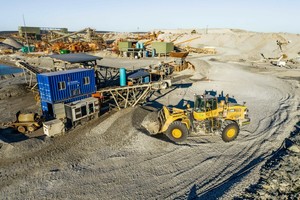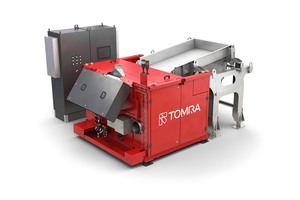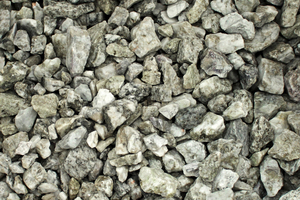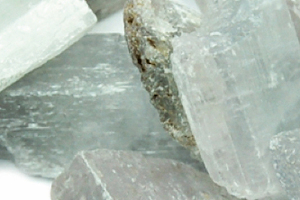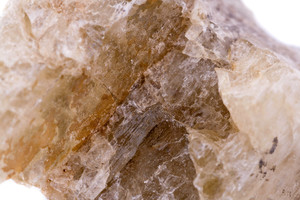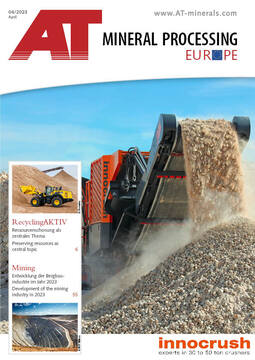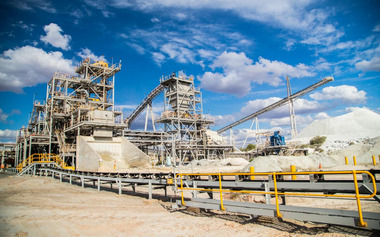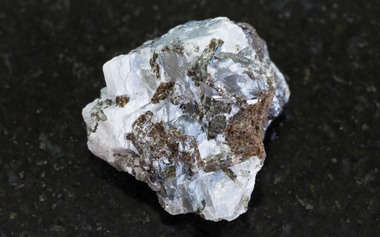Mining: a vital link in the transition to a net-zero economy
We are facing the challenge of meeting an unprecedented demand for metals and minerals, which are finite and scarce resources. Recycling rates for materials critical to the energy transition, such as Rare Earth Elements, lithium and graphite, are low and not expected to rise significantly for some time. Even then, recycling alone will be unable to meet the increasing demand, and mining will continue to play the key role in supplying necessary primary resources. It is becoming increasingly important to mine efficiently and sustainably using modern technologies such as sensor-based sorting.
Sustainable mining to support the energy transition: Lithium
In October 2022, the European Parliament and Council have provisionally agreed that all new vehicles registered in Europe must be zero emission by 2035. This agreement is set to accelerate the adoption of electric cars: according to the European Automobile Manufacturers’ Association, in 2021, 20 % of new cars sold in the EU were plug-in and by 2030 this set is expected to rise to 60 %. Legislative actions such as this across the world will drive a fast growth in the demand for electric cars, which will require high volumes of lithium for their batteries.
The current production rates of lithium will soon be insufficient to meet this demand. In fact, according to the Benchmark Mineral Intelligence, it will require 78 mines by 2035 (the calculation includes projected volumes of recycled lithium) – this is around six times more production than today. It is essential that mining and processing this element is as sustainable as possible.
Sensor-based sorting technology can significantly contribute to reducing the environmental footprint of lithium mining and processing in different ways. On the one hand, it is able to selectively reject waste and low-grade ore upstream of processing. This means that less material is processed, resulting in significantly lower usage of energy, water and chemicals. A complementary environmental advantage of this technology is the reduction of wet tailings.
On the other hand, sensor-based sorting technology addresses effectively the challenge of basalt contamination, typical of lithium mines. Due to its high density – similar to that of spodumene – this high-iron, barren material is also concentrated by Dense Media Separation, contaminating the final product. With sensor-based ore sorting technology, it is possible to sort out the basalt and as a consequence to unlock value from existing stockpiles of contaminated materials, achieving a high-purity product.
This was the case at the Galaxy Resources Mt Cattlin mine in Western Australia, which had been stockpiling basalt contaminated material since 2016, while it searched for an effective solution. In 2021 it installed a TOMRA PRO Secondary Laser sorter, and in 9 to 12 months it processed the best part of the 1.2 million tons of stockpiled material, consistently achieving high purity with less than 4 % basalt. As Matthew Bateman, Principal Metallurgist at Galaxy Resources said, “with the TOMRA sorter, we are using far more contaminated ore than we would previously have processed.”
Sustainable mining for agriculture: phosphates
Another excellent example of how sensor-based sorting can make a difference is in processing phosphates, recovering the valuable nutrient efficiently and more sustainably. The sorting plant at Wa’ad Al Shamal in Saudi Arabia, with a capacity of around 1900 t/h, is the perfect demonstration of this technology’s potential.
The run-of-mine material contains significant amounts of unwanted flintstone, or chert, which has to be removed before the phosphates are fed downstream for refinement processes. TOMRA’s X-Ray Transmission sorters remove flintstones from the phosphate to reduce silicon content, so that the downstream process can be significantly downsized. This results in much lower consumption of energy, water (as much as 45 % less), and flotation reagents.
In addition, TOMRA’s sensor-based sorters are able to process larger grain sizes, extract value from materials which are often discarded as waste when using traditional sorting solutions such as Dense Media Separation.
Collaborating for a sustainable future
To achieve the Paris Agreement goal, countries around the world need to reduce their greenhouse gas emissions to ‘net zero’ by around 2050. This means that every sector must reduce the amount of carbon it puts into the atmosphere. For this to happen, legislation has a critical role to play in addressing market flaws, pushing for environmental compliance, drive investments and create favourable conditions for businesses to invest, and foster alignment of all stakeholders.
Collaboration will be key in all industries, and TOMRA is actively seeking opportunities to build partnerships with the big mining houses and other stakeholders across the mining supply chain. This is the path to achieving a circular economy where mining will play a vital role by supplying the minerals needed for the energy transition and the new low carbon technologies. Collaboration will enable the mining industry to operate sustainably, maximizing the opportunities to reduce its environmental footprint.
TOMRA Mining is already actively contributing to green mining with its sensor-based sorting technologies, enabling mines to maximize the efficiency of their operations, minimize the use of energy and other inputs, and reduce waste as much as possible. Today there are around 190 TOMRA sorters in operation across the world, delivering a reduction in CO2 emissions of 168 945 metric tonnes per year.

